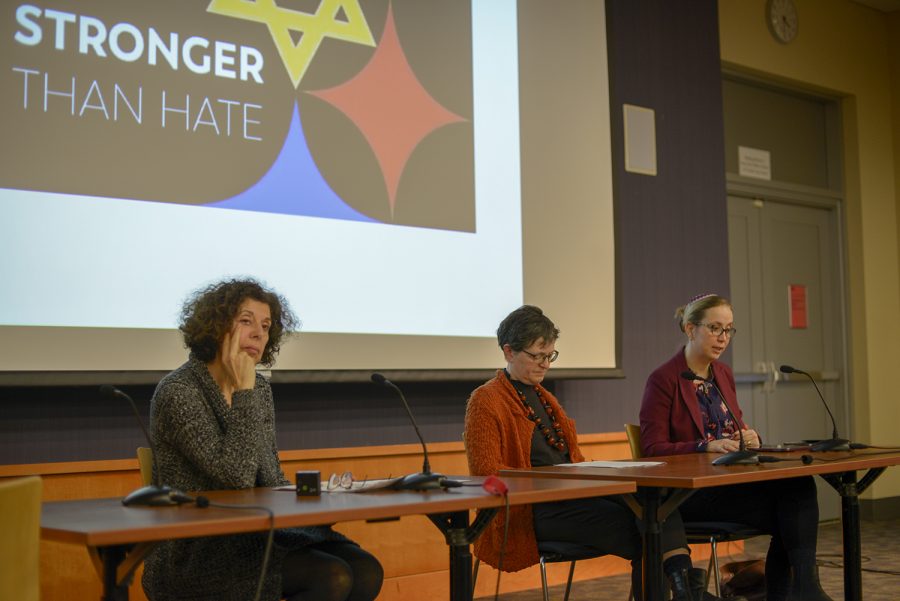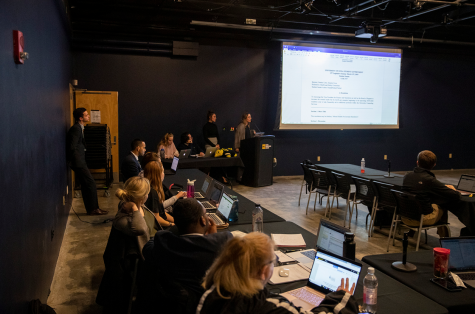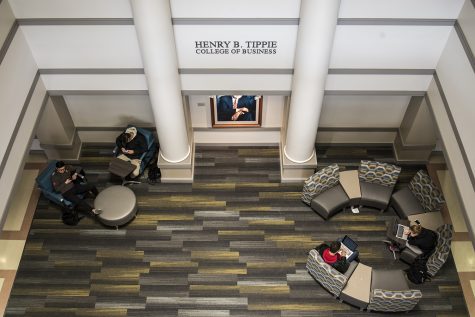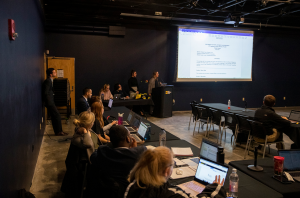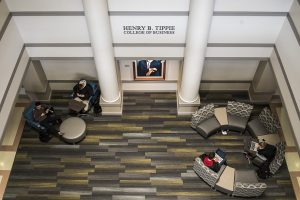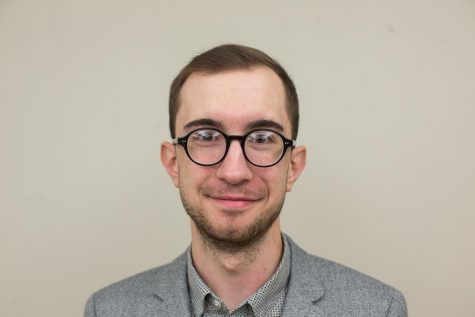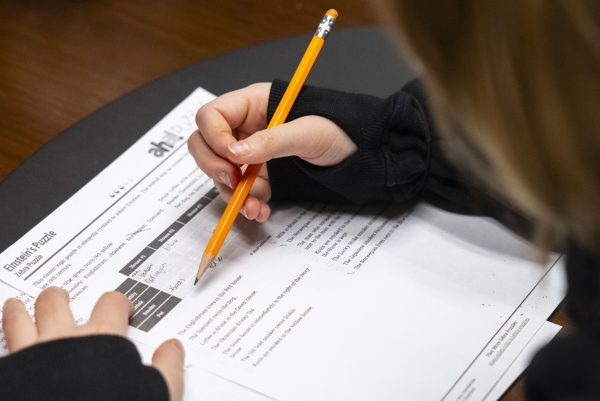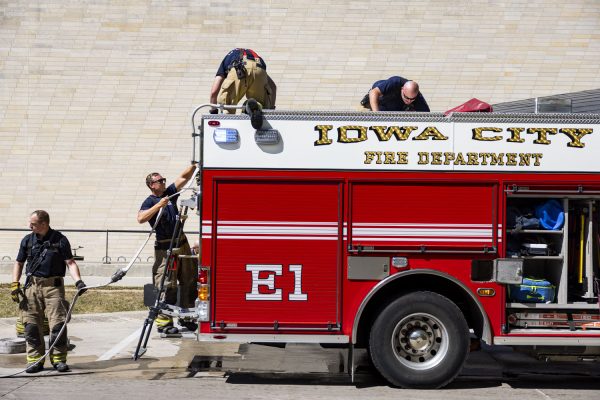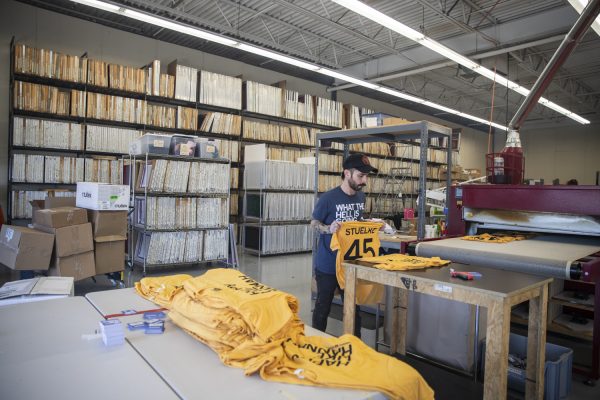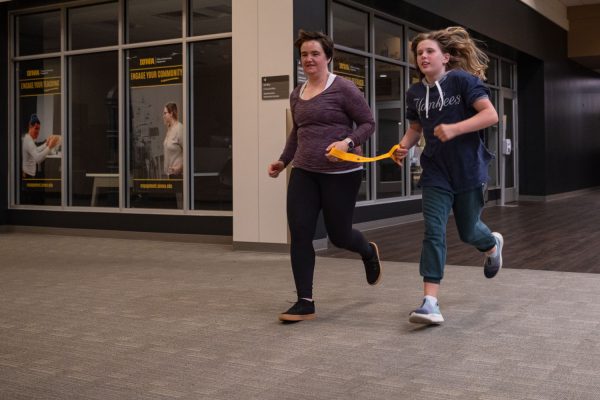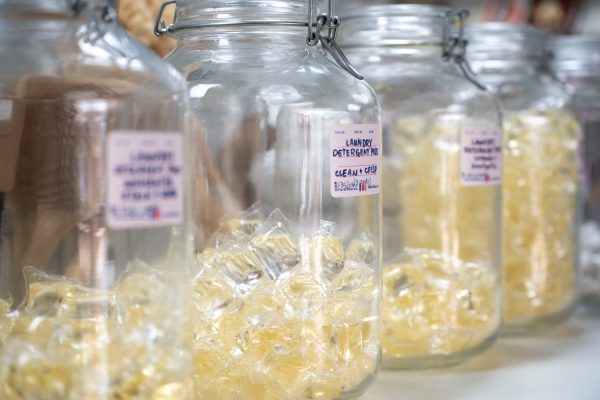‘Stronger than Hate’ panel sheds light on overcoming anti-Semitism
A panel on Thursday evening discussed anti-Semitism across Iowa City and the globe.
Poet Esther Dischereit (left,) Professor Elizabeth Heineman, and Rabbi Esther Hugenholtz discuss the rise in American and European anti-Semitism in the Iowa City Public Library on Thursday, March 14, 2019. The panel discussion, entitled “Resurgent Antisemitism and the Importance of Historical Remembering,” postulated the causes and potential solutions to prejudice.
March 14, 2019
“You have plunged me in this everlasting blackness.”
The room was silent as Berlin-based author Esther Dischereit read from her poetry on historical memory. Her reading focused on the pain and suffering felt during and after World War II.
Dozens of students, faculty, and community members gathered in the Iowa City Public Library on Thursday afternoon for a panel and discussion on the rise of anti-Semitism in the United States and Europe.
The event, “Resurgent Anti-Semitism and the Importance of Historical Remembering,” focused on the historical context and evolution of anti-Semitism, in addition to strategies for critical intervention. In order to understand why prejudice occurs today, University of Iowa Professor Elizabeth Heineman said, we must first dissect structural, or implicit, bias and intersectionality.
“When we think about bias, our minds usually go to many other places, such as racism,” Heineman said. “Only recently have we begun to think about how anti-Semitism is something we need to learn about today.”
Rabbi Esther Hugenholtz said that in the aftermath of the Pittsburgh synagogue shooting, for example, her congregation had to worry about security measures instead of solar panels for the roof.
RELATED: Neo-Nazi card found in library
“Our emotional and financial resources are being syphoned into anti-Semitism,” Hugenholtz said.
Messages of bias, Hugenholtz said, may be unavoidable but should be met with the strength of a unified community. All three panelists advocated for becoming educated about the internal and external factors that influence biases.
“It’s hard work, but I don’t see any other possibility,” Dischereit said.
RELATED: Mural near IMU decommissioned due to vandalism
On March 8, the U.S. House of Representatives approved a measure condemning anti-Semitism and other hateful acts. The approval, however, came after much dissent — Rep. Ilhan Omar, D-Minn., and other House Democrats delayed the measure to include condemning hateful acts toward Muslims and other under-represented groups.
According to the most recent data from the Anti-Defamation League, there were nine reported incidents of anti-Semitism in Iowa in 2017. This included five reports of harassment and four incidents of graffiti.
Nationally, the report cited 1,986 anti-Semitic incidents in 2017, a 57 percent increase over the previous year.
Around Iowa City and on the UI campus, The Daily Iowan has reported on nearly a half dozen acts of racist or anti-Semitic vandalism or fliers since 2016. This includes Nazi graffiti on a campus mural near Art Building West, and most recently, swastikas and Bible verses on the Iowa City’s Church of the Nazarene.
Following the incidents, UI Assistant Vice President for External Relations Jeneane Beck said the university is committed to creating a safe atmosphere for its students.
RELATED: ‘Hateful’ fliers disturb UI community
“If a member of our campus community finds vandalism, graffiti, or a racist message of any kind, they should report it to UI police so it can be documented and removed,” she said in a statement to the DI. “Reporting allows the university to track the frequency of these messages and ensures the university connects with students, faculty, or staff who may wish to speak with someone about the incident or need support services.”



